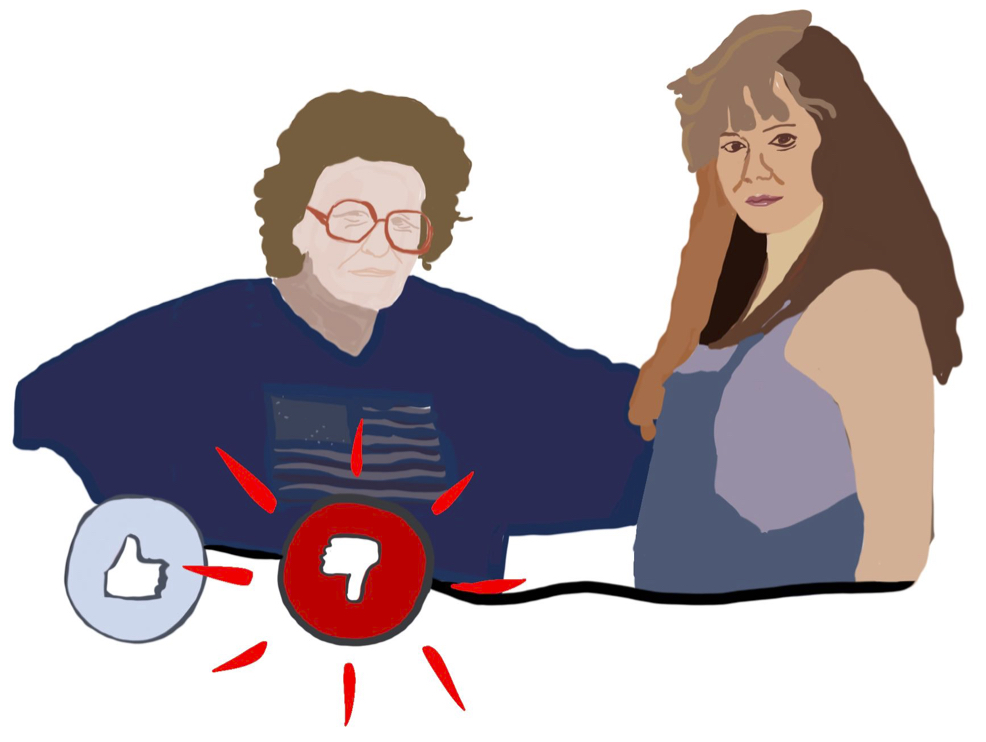“Hillbilly Elegy” and Hollywood’s struggle for authenticity
December 4, 2020
 Dalia Tabachnik
Dalia TabachnikIn 2016, J.D. Vance released “Hillbilly Elegy: A Memoir of a Family and Culture in Crisis,” and it has been the topic of conversation for years since. Some say it points to why Trump won the 2016 presidential election, as it unveils a group of people living in Appalachia that have seemingly been forgotten. The book was meant to act as a gateway for the world to see the struggles working-class Scots-Irish people have in America—and it was a hit. So, naturally, Ron Howard decided to make his “Hillbilly Elegy” the blandest, most outlandish Hollywood version of Vance’s story possible.
The movie interweaves Vance’s early years living in Middletown, Ohio, with his time as a Yale Law student. On paper, this is a narrative structure that is very common for films spanning many years, and it should have worked here. However, the issue with using a basic structure is that it inherently indicates that there is nothing about this person’s life story that is different from any of those other movies. “Hillbilly Elegy” tries to act as a vehicle to show audiences the issues for Scots-Irish in Appalachia, but it feels too out-of-touch to truly understand its own story. Instead of showing an area with thousands of hurting families, the movie makes it seem like this is simply a performance of a family drama that deserves Oscars.
One scene has stuck with me since it embodies the lazy screenwriting and overacting of the performers. Young J.D. is decorating eggs for Easter with his sister and his mom, Bev, when Bev’s boyfriend brings a dog home as a surprise. Bev is excited, suggesting that J.D. has always wanted a puppy. In a matter of minutes, though, her mood shifts to worrying about the dog peeing in her room, and she ultimately yells that she will kill the dog. Unfortunately this scene embodies the fact that the film could not find a more nuanced way to approach any of the issues the Vance family encounters, from poverty to addiction. Bev, played by Amy Adams, is a character that the audience is supposed to feel sympathy for, as she is a struggling drug addict and single mom. I think that Adams is a terrific performer and is well-deserving of her seven Oscar nominations, but this is one of the most tone-deaf performances I have seen in years.
Since watching this film, my goal has been to understand exactly what went wrong. The answer I have come to is that this movie is simply inauthentic. Take Glenn Close—who plays J.D.’s grandmother, Mamaw—for example. In my opinion, she did the best job performing of anyone in the movie, especially since her character survived the terrible screenwriting. But, Close has been around for decades and also has seven Oscar nominations to her name. Close and Adams are completely recognizable actors, and performing this story meant just another role where they tried to act the best they could with what they were given. Arguably, both of them did exactly what was asked of them, but it still falls short of actually being something meaningful. Their recognizability indicates to audiences that this story is just an isolated incident. One of the tragedies of this film is that it fails to truly recognize the many problems of the region and instead puts the Vance family at the center of the universe.
I wish that the film was able to address issues of poverty and addiction in a more thoughtful, careful way. We have this brash, outlandish piece of garbage to live with instead. Maybe the real problem is that some stories should not be told by Hollywood royalty like Ron Howard. He has had plenty of incredible films, such as “Apollo 13” (1995) and “Frost/Nixon” (2008), but his most successful films are those that tell grand, historical, dramatic stories. Howard’s transition to a smaller, isolated story like Vance’s feels disjointed. There are many sincere things that “Hillbilly Elegy” wants to address, but the delivery instead results in something very callous. The success of the book only meant that there would eventually be a major motion picture, but that idea itself is flawed and outdated. The film version of this story deserved to be carefully crafted by an independent studio, but instead we are left with this overdramatic mess. Stories like Vance’s should be more genuine in their delivery, but instead successful, experienced filmmakers are given the reigns to gloss over their overall importance. Do yourself a favor and ignore the existence of “Hillbilly Elegy.”

Comments
Before submitting a comment, please review our comment policy. Some key points from the policy: